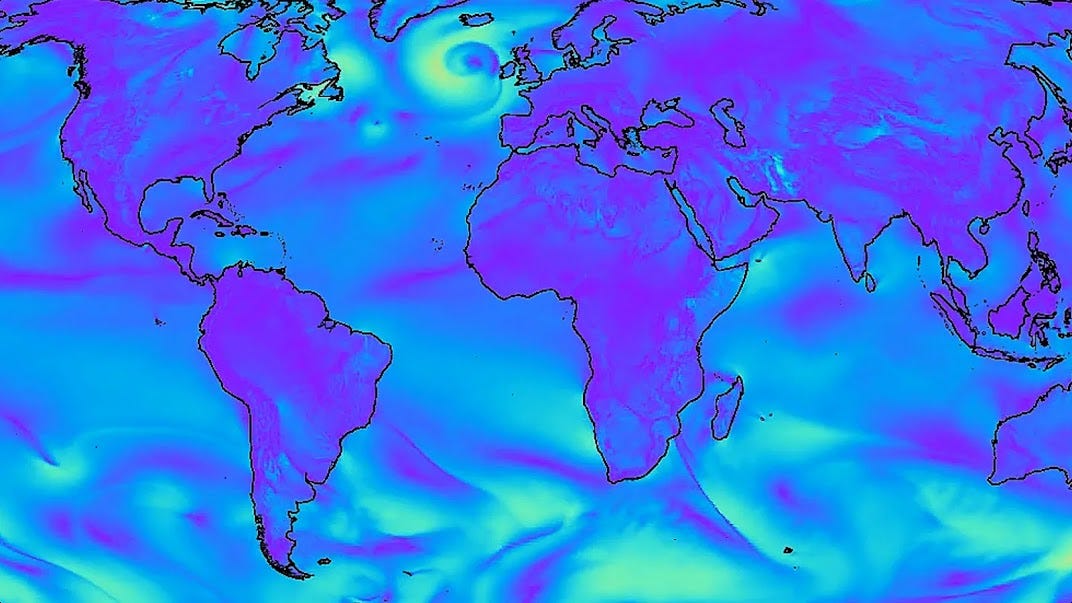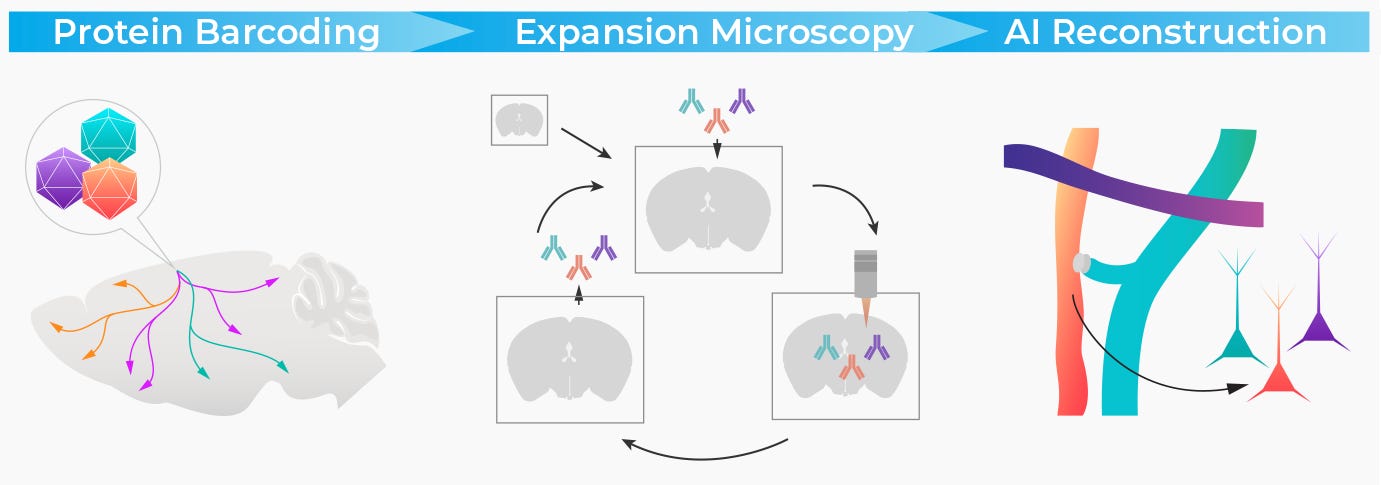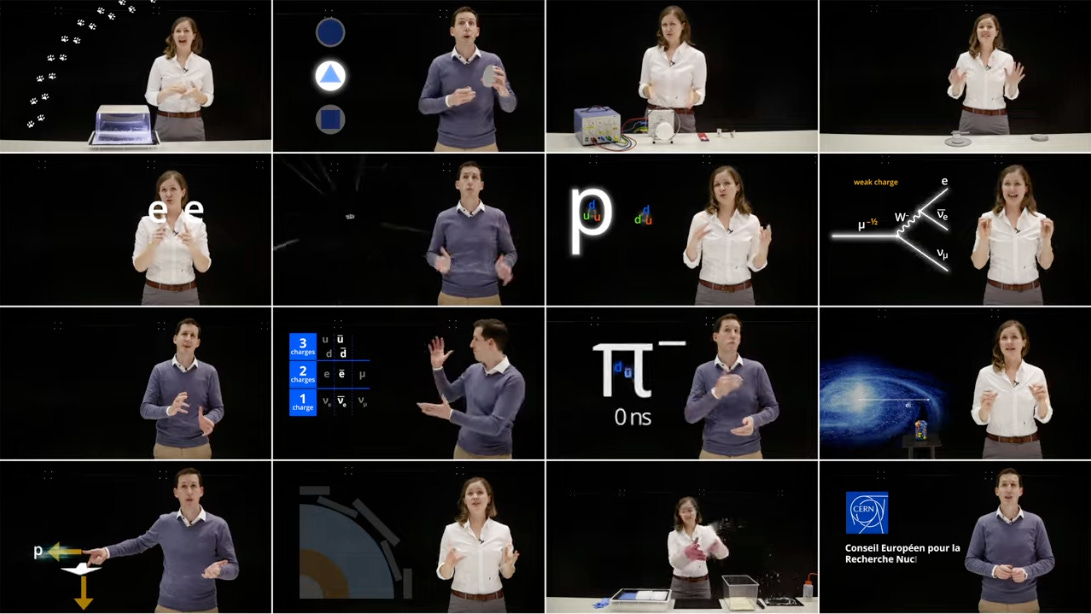Weather Forecasting, Connectomics, Multimodal Datasets, and Our New Podcast
Launching into 2025 🎆
Happy New Year. The last few weeks have brought a whirlwind of developments and resources in AI for Science. Oh, and we launched a podcast (more on that below). As we kick off 2025 and dive back into the rhythm of discovery, here’s a curated roundup of the most useful and newsworthy highlights to start your year strong.
DeepMind Launches GraphCast AI Weather Model: According to a recently published paper in Nature (“Probabilistic weather forecasting with machine learning”), Google DeepMind sidestepped traditional physics-based weather simulation techniques to develop a highly accurate ML-based model for predicting 15-day global forecasts. Google claims their approach delivers forecasts more accurately and more quickly than gold-standard weather simulation systems, a feature especially important given natural disasters such as the wind-fueled Southern California wildfires. (PSA: Having previously volunteered for the Red Cross’ wildfire relief efforts in LA, I can attest to the excellent work they do. Click here to donate the Red Cross’ relief fund.)
E11 Launches PRISM Connectomics Platform: Non-profit startup E11 Bio announced PRISM, or “Photo-connectomic Reconstruction by Iterative Staining with Molecular annotations.” This new platform integrates genetic labeling, microscopy, and AI modelling to more affordably model and map mammalian brains. The goal? Advancing our understanding of brain disorders and inspiring the development of brain-inspired AI systems. More info here.
US and China Renew Science Pact: In a time when there is increased pressure for the US to “decouple” from China and other states, a long-running science pact between the US and China was renewed for another five years. This deal “sustains cooperation between government and university researchers in basic science such as earthquake and health monitoring.” Read more in the Wall Street Journal (paywall).
Andreessen Horowitz + Lily Biotech Launch Ecosystem Venture Fund: Lilly and a16z team up to deploy a $500 million fund focused on “advancing the development of new medicines, enabling novel modality platforms, and scaling emerging health technologies.”
Our North Star is to accelerate scientific discovery. One way we believe we can help is by shining a light on the founders and innovators who are boldly transforming how science is done, and helping them build the partnerships, hire the talent, and close the deals necessary to get their ideas out of the lab and into the world.
That’s why we’re thrilled to introduce Discovery Engines – our podcast dedicated to these changemakers. As your host, I (Nabil) will bring you inspiring stories and actionable insights from trailblazers in science and technology, starting right here in our backyard in San Francisco.
In our debut episode, I sit down with Cristian Ponce and Théo Schäfer, co-founders of Tetsuwan, a startup pioneering AI scientists to accelerate life science research. We delve into their founding journey, their first customer deployment, the state of life science robots, rules-based vs. machine learning-based AI, and the future of lab automation.
We hope you enjoy listening as much as we enjoyed creating this episode. If you do, consider subscribing on your favorite platform for more inspired content.
Watch now: YouTube | Spotify Podcasts | Apple Podcasts (audio only)
The Well and Multimodal Universe Datasets: Research collaboratives Polymathic AI and Multimodal Universe released 115 terabytes (!) of validated scientific data in a variety of domains including fluid dynamics, biological pattern formation, acoustic wave propagation, and astronomy. The purpose of such a diverse dataset is to help AI exploit common phenomena across sciences, such a waves. More context here from Miles Cranmer.
Bluesky Starter Pack: As the science community increasingly embraces the social media platform Bluesky, this crowdsourced effort attempts to help us wayfind. With a heavy emphasis on Chemistry, it also includes lists of experts and organizations in Science Communication, Open Source Machine Learning, and Research Policy, among others.
Elman R&D Platform: London based Venture Studio Deep Science Ventures released Elman, a platform leveraging LLM agents to offer workflows for R&D, “from initial approach design to final development.” Sign up to try it here.
CERN Particle Physics Course: The European lab for particle physics, and home of the Large Hadron Collider, now offers a free online course to learn about everything from Higgs boson to antimatter. Duration of entire video library is four hours; direct link here.
Is Everything Conscious? As AI engineers, ethicists, and others explore the definition of consciousness, and the ethical questions that arise with creating simulated conscious agents, some argue that it’s a moot point: from birds to rocks, the universe is already inherently teeming with consciousness. Rooted in Giulio Tononi’s Integrated Information Theory, this article in Quartz lays out this thought-provoking hypothesis.
Find this newsletter valuable? Subscribe for regular insights, and share it with friends who are passionate about AI for Science.
Help us improve. Like a good neural network, this newsletter is only as effective as the input it receives. We’d love to hear your feedback – let us know how we can make it even better for you.
Catch you on the next one 🤙🙌 – Nabil











